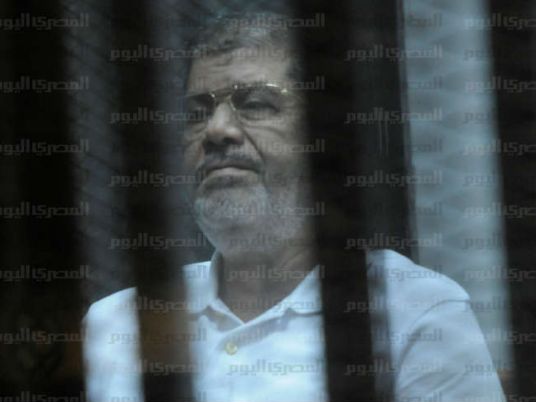Many observers have declared that last week marked the death of Egypt’s democratic transition. First, there was the dissolution of an elected Parliament, ordered by a court and enforced by the army. Then, an arbitrary military decree gave the ruling generals control over the new constitution and restricted the powers of the next president. With this “coup by judicial means” casting a dark shadow over the fate of Egyptian politics, one wonders how much the presidential election result actually matters. No doubt, Mohamed Morsy’s win marks a big victory over lingering elements of the Mubarak regime — ex-ruling party officials, old patronage networks, media figures, and state bureaucrats — that rallied around Ahmad Shafiq in a desperate attempt to thwart the Muslim Brotherhood’s ascent to power. But, that’s not the case for the Supreme Council of the Armed Forces, or the enemies of the Brotherhood in other government institutions.
The military council’s new Constitutional Declaration, which complements an earlier one decreed in March 2011, grants the generals far-reaching powers that will circumscribe the much-anticipated handover of power on 30 June. They will retain full control over all military matters, including army appointments and the decision to go to war. They will continue to legislate until the election of a new Parliament. The generals can also form a Constituent Assembly if the current one fails, and they can veto any provision in the new constitution, a right also shared by the prime minister, the president, the chief justice, and one-fifth of the Constituent Assembly. But most disturbingly, as Nathan Brown has pointed out, the SCAF will continue to function in its current form, i.e. not under the leadership of the new president, thereby giving it the status of an institution independent of the three traditional branches of government — the legislature, the executive, and the judiciary. In short, the declaration shields a powerful military council from the oversight of elected civilians, while ensuring the new president’s authorities are limited and vulnerable to revision.
The military’s power grab should not come as a surprise — nothing about it represents a major departure from the cynical transition that the SCAF has been guiding since February 2011. The generals have ruled arbitrarily for the past year and a half, with little respect for democracy or the rule of law. Their original Constitutional Declaration, a 63-article document laying down the legal framework for Egypt until a new constitution is complete, was designed and enacted with minimal public input or approval. Eight months later, the generals tried to implement the controversial “Selmy Document” to ensure the protection of their financial and political privileges in the new constitution, but the proposal was revoked under popular pressure. In key respects, the new declaration resembles the Selmy version — it gives the SCAF full control over military affairs, and the final word over the constitution. Additional decrees have encroached further onto civilian authority, like a recent one forming a military-dominated National Defense Council responsible for all matters related to “national security.”
And so, one year and a half after Mubarak’s fall, Egyptians find themselves in a stark confrontation with an uncomfortable truth: a military establishment that has been intent, since February 2011, on entrenching its power under a civilian façade. Accepting a so-called democratic transition under military rule was a serious error of judgment on the part of civilian political forces. Today, we’re paying the price for a deeply flawed process that was intended from the start to safeguard the prerogative of the military council not to facilitate a genuine transition to civilian democracy. While the SCAF is the biggest culprit in this predicament, civilian political leaders from across the spectrum deserve their share of the blame too. They have failed to adopt a common platform on how the transition should proceed, or to unify their efforts in confronting the military council’s actions. As a result, the SCAF has successfully manipulated the divisions between civilian forces to its advantage.
Despite Morsy’s victory it’s still too early to predict how the final configuration of power will look. Will the generals’ recent maneuvers set the stage for a showdown with a victorious Muslim Brotherhood? Or, will talks between the two sides lead to a power-sharing deal, even if temporary? In their recent statements, Freedom and Justice Party officials have clearly rejected the dissolution of parliament and the military’s attempt to seize the constitution-writing process. To what extent they will follow through is still unclear. The Brotherhood’s history of unilateralism and closed-door negotiations with SCAF does not bode well. They may prefer to have a president operating under clear restrictions for now rather than defend democratic principles. Moreover, the Brotherhood has numerous challenges ahead — the parliament, the new declaration, and the constitution — and will choose their battles with caution. As the official election results are announced, the Brothers now have the chance they’ve been waiting for. It remains to be seen how they will play the cards they have been dealt.
Ahmad Shokr is a doctoral candidate in Middle East history at New York University. He is based in Cairo.

